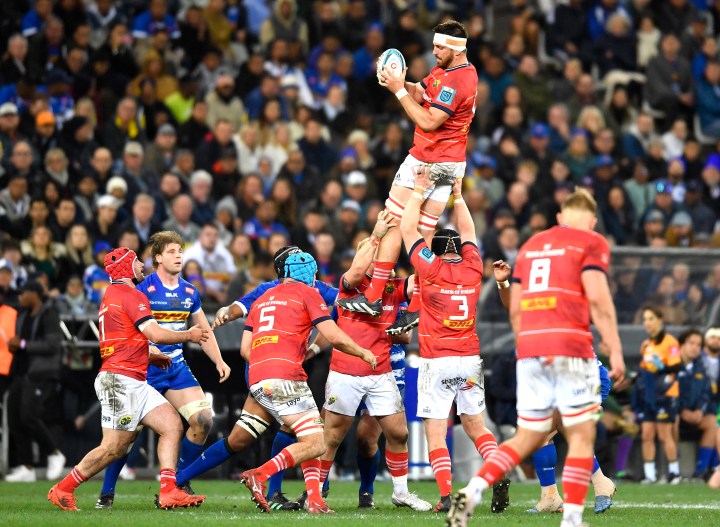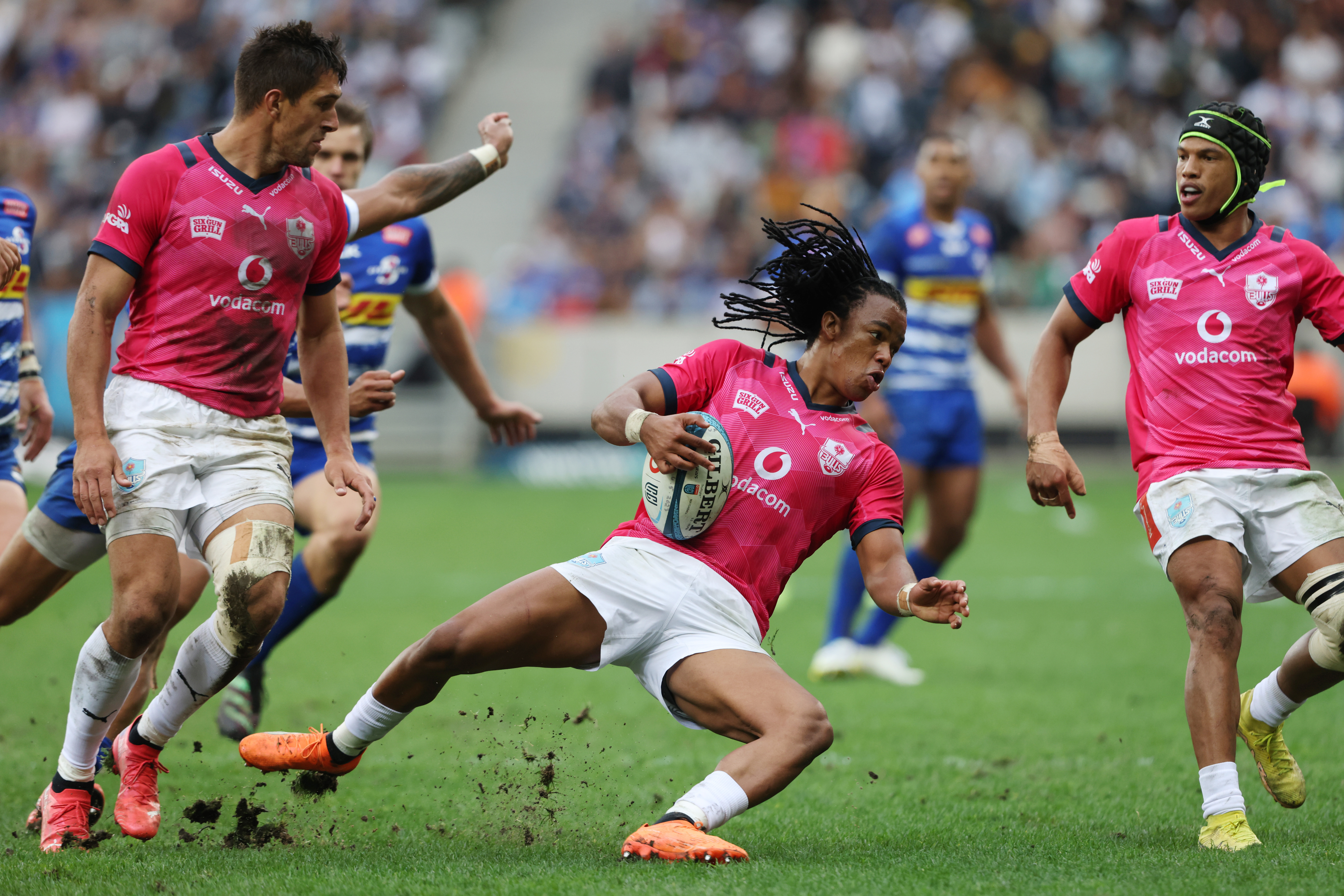RUGBY FRANCHISES
A raise in the salary and player cap can boost SA teams fighting on many fronts

The move to Europe has exposed South Africa’s rugby franchises to a new commercial market and, in time, the teams and their mother body are expected to reap substantial financial benefits.
South African rugby has increased the salary and player cap at the franchises with the aim of improving player welfare as well as team performance across a long and challenging European season.
MyPlayers CEO Eugene Henning told Daily Maverick that the salary cap has been raised from R71-million to R85-million ahead of the 2023-24 season. In addition, the franchises will have the option of contracting four “marquee players” outside the salary cap. Squad sizes could swell from 53 to 57 players, with coaches developing various options and combinations to perform across three tournaments concurrently.
Though the salary cap and squad size has been a point of debate since SA Rugby’s pivot from Super Rugby to Europe in 2021, the recent season has highlighted the enormity of the challenge as well as the need for greater strength in depth at each franchise.
Over the past season, the Bulls, Sharks and Stormers competed in the Champions Cup in Europe for the first time, and the Cheetahs and Lions debuted in the Challenge Cup. The top four franchises played in the United Rugby Championship (URC) while also fielding young or weakened teams – often on the same day – in the Currie Cup.

Stedman Gans of Bulls during the United Rugby Championship quarterfinal match between DHL Stormers and Vodacom Bulls at DHL Stadium on 6 May 2023 in Cape Town, South Africa. (Photo: Carl Fourie / Gallo Images)
Depth was tested
The depth of the top franchises was tested during the periods when the Springboks were away on national duty or called up to World Cup preparation camps. The introduction of a 32-game cap as well as a mandatory eight-week rest period was necessary from a player-welfare perspective, yet led to a further strain on resources.
Since MyPlayers agreed to the raising of the cap on 26 May, a series of high-profile signings have been confirmed. The likes of the Bulls and Sharks have supplemented their player pool ahead of the new season, which will start on 1 July. The Stormers are set to conclude a private equity deal and – as suggested by head coach John Dobson immediately after his team’s 19-14 loss to Munster in the URC final – will bolster their squad accordingly.
There are plenty of reasons to be positive in the wake of a historic first season in Europe. All five South African franchises progressed to the playoffs of the respective European tournaments, and the Stormers hosted a URC decider for the second time. The move to Europe exposed South Africa’s franchises to a new commercial market and, in time, teams and their mother body are expected to reap substantial financial benefits.
Going purely by results, however, the past season could be summarised as a reality check rather than a success.
Stumbled at the first hurdle
Three South African teams qualified for the Champions Cup playoffs, but no team progressed beyond the quarterfinal stage. Although the Stormers advanced to the URC final, the Bulls and Sharks limped into the playoffs and stumbled at the first hurdle. The Sharks, who boast more contracted Boks than other sides, struggled to perform consistently and fell short of qualifying for next season’s all-important Champions Cup.
The overseas results make for grim reading. South African franchises combined for a 32% win-record across all games staged in the northern hemisphere. No team managed to win in Ireland. The Stormers were the only side to win in England (out of the four matches played by South African teams), and the Sharks claimed the only victory in France (out of six games).
To be fair, the players were compromised by a few logistical issues. The teams were forced to travel to Europe via the Middle East – a journey that cut into recovery and preparation time ahead of major fixtures. Bouncing between Europe and South Africa on a near-weekly basis contributed to player fatigue and underperformance. These logistical problems look set to be addressed by the tournament organisers in the lead-up to the new season.
What won’t change, unfortunately, is the number of matches played over the course of the campaign – and it is here where a bigger squad with seasoned players may help. Dobson made the point recently that a raise in the salary cap and an increase in squad size should improve teams’ chances of performing across multiple tournaments.
Each South African team plays a minimum of 36 and a maximum of 45 matches across the Champions Cup or Challenge Cup, the URC and the Currie Cup over the course of a season. Until now, coaches haven’t had the resources to plan for success in all three tournaments, and have been forced to save their best players for specific matches in a priority competition.
On the overlap
The close proximity of high-profile Champions Cup clashes and important URC matches – which can determine whether teams actually qualify for the next instalment of the Champions Cup tournament – has been problematic. Furthermore, the URC and Currie Cup have overlapped, and franchises have had to field teams in both tournaments on the same weekend.
In future, some coaches will be in a better position to tackle these challenges.
The jury is still out on whether a raise in the salary cap will worsen the financial situation in South African rugby. But an increase in personnel – especially in the number of experienced players – should help the better teams to cope with competing and excelling across multiple tournaments. DM
This story first appeared in our weekly Daily Maverick 168 newspaper, which is available countrywide for R29.





















 Become an Insider
Become an Insider
Comments - Please login in order to comment.